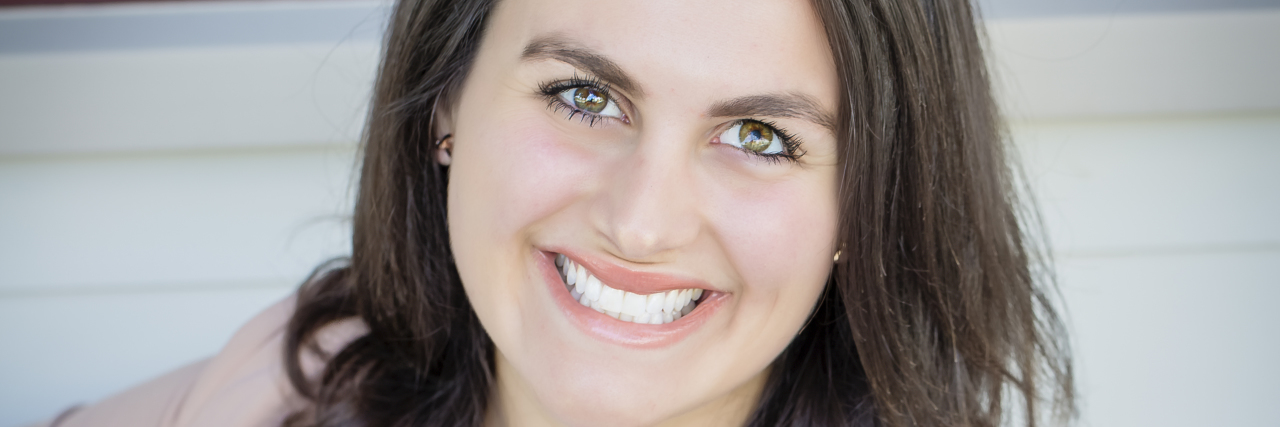It was such an innocent mistake. My 6-year-old self arrived to preschool, bright brown eyes filled with wonder at what the day might hold. It all seems so fuzzy. I played a game, ran after the ball, laser-focused on my prize! Then it was done. My left eye was completely impacted and I started to walk the path of learning to cope with eye loss.
There’s a grief that comes now with knowing I truly don’t remember what it was like to have a full field of vision. “Does it feel weird to only see with one eye?” I don’t know; I’ve learned to see the world with monofocal vision, and it’s all I know. There were surgeries, oh so many surgeries — removing scar tissue, trying to revise my lid — hoping for a way to help me see again. They tried. I remember my 7-year-old self wanting so badly to scream “Yes, I can see!” partly for the room full of ophthalmologists, but mostly for my mom. She wanted so badly for me to be able to see again, and I knew even then that wasn’t going to happen. I was blind in my left eye and that is the way I would exist in the world. My community wrapped their arms around me. I was featured in a newspaper article telling my story, my kindergarten class showered me with hugs and books, and my family gave me the words “what a strong little girl.”
That’s not what I needed.
I needed to know the sheer discomfort of maintaining eye contact with someone for longer than five seconds. I needed to be prepared to know what my now shrunken eye would look like — the cloudy blue iris of an aging blind man on my young face. I needed to know how to speak about my experience, and not just say “it was an accident.” I needed to not be so “strong.”
I needed to know if I’d be able to drive one day. I needed to know that I’d forever have to turn my neck over my shoulder farther to the left to check my blind spots. I needed to know that my clumsiness walking around left corners wasn’t because I wasn’t paying attention, but because my field of vision was so narrow. I needed to know I still had permission to be myself, that I did not need to hide myself under this loss.
When I was 14, I saw an ocularist and he made me a prosthetic eye — a shell. The process in and of itself was agonizing for me. I sat for my hour-long appointments, making unbreakable eye contact with my face no more than a foot away from the ocularist while he painted every layer of color in my new iris. Each layer of paint was created to resemble a “normal” eye. Then, it was done. The prosthetic popped in under my eyelid and I had a new face; I was no longer walking around with a visible wound. And even still, I had no words for this experience. I simply went on and continued to feel like a stranger in my own body, with my new eye.
I needed a story. I needed to create my story around it. I’ve lived in silence and avoidance for 20 years, isolated, dismissing and denying my experience to try to suppress frustration, anger, and grief. I buried my anger so deep it became denial. I didn’t talk about my eye. I knew the “look” the moment after I met someone with eye contact and could feel within me that they knew something was different, “off” about me. And still I have no words, so I look away, smile and leave. This has been what I’ve known.
Repressing the story inside me spiraled into shame. How did I cause this? Why should I burden others with my sob story? I don’t want their pity. But I just can’t continue to let my story be minimized and overlooked. I’ve never identified as having a disability and I have yet to experience any major limitations from living with one eye, yet the fear is real. I’ll always wonder how long my one eye will be able to sustain the load of screen time and reading after overcompensating for years. I’ll never know if my time seeing the world is limited and if I’ll lose all of my sight one day.
But I do know that if you’ve experienced eye loss, you’re not alone. The discomfort, the gnawing in your stomach, the questions you have about your sight — they’re all real. You deserve to be seen — and to see.

